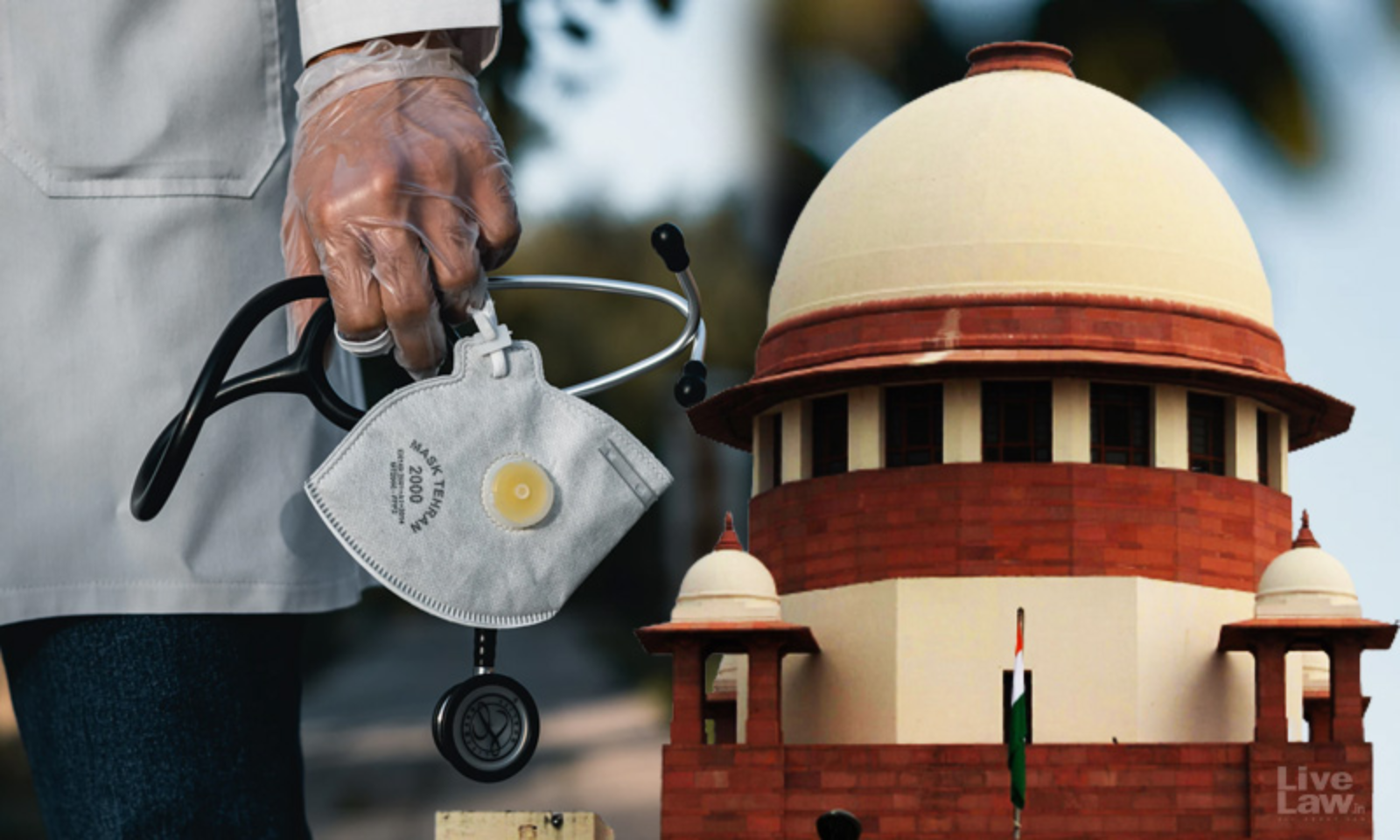
Junior Resident Doctors In ESIC Hospitals Cannot Claim 50% In-Service Quota For PG Courses: Supreme Court
The Supreme Court of India on Friday held that Junior Resident Doctors serving in Employee State Insurance Corporation (ESIC) run hospitals as part of their bond period cannot claim 50% in-service quota for Post Graduate courses at par with Insurance Medical Officers.
The Bench of Justices DY Chandrachud and AS Bopanna was hearing a petition seeking to declare all junior resident doctors to be eligible for the in-service quota for doctors of the ESIC for the purpose of inclusion for reservation in PG courses. Another direction that was sought was to extend the 50% quota in-service doctor’s reservation of PG courses to the junior resident doctors as well.
The counsel appearing for ESIC, Advocate Manish Kumar today filed an affidavit explaining the distinction between junior resident doctors such as the petitioner and regular medical officers who are recruited by the ESIC. As per ESIC’s affidavit, an in-service quota is made available to regular employees, i.e., doctors of the ESIC, who are governed by the ESIC (Staff and Conditions of Service) Regulations,1959. Junior resident doctors are not governed by these regulations.
The junior resident doctors, on the other hand, are governed by the ESIC residency scheme, which also includes the other particulars and entitlements. The affidavit stated that the revised scheme was issued on Nov 24, 2020, based on a memorandum issued on July 20, 2020.
The candidates who had pursued their undergraduate degree courses in ESIC’s medical and dental colleges are required to execute a bond in the ESIC hos hospital for a stipulated period of time. Until 2017, the period of the bond was 5 years, after which it was reduced to three years. On July 20, 2020, the bond period was revised to one year for UG MBBS and BDS students at the ESIC Medical and Dental Colleges, the affidavit read.
The affidavit was filed as a response to the court’s queries in the previous hearing. In June 2022, the Supreme Court asked the ESIC to confirm if the term of the bond for doctors who have completed MBBS from ESIC-run institutions to serve such institutions has been changed from five years to one year.
The Petitioners had completed their one-year compulsory bond period in 2019 and 2020, though they were not under any compulsion to serve beyond the one year, as stipulated in the memorandum dated July 20, 2020, they had continued to serve by their own volition, Advocate Sachin Patil, appearing for the petitioners stated. It was further argued that though the Petitioners are similarly placed junior resident doctors like IMO- II but they are not held to be eligible for said 50% quota of ESIC Hospitals. Thus, the policy of ESIC is arbitrary and discriminatory which violates Article 14 of the Constitution. The argument was that ESIC has been granting the benefit of reservation to one set of in-service candidates and denying a said benefit to another set of in-service candidates when both are at par and similarly placed.
Noting these rival submissions, the Bench, in its order, observed, “The reduction in the bond period was brought about in July 2020, was also extended to all existing students, as well as an undergraduate (MBBS/BDS pass outs serving the ESIC hospital). Hence, there is a clear distinction in law between the junior resident doctors and regularly recruited ESIC doctors and the in-service quota is, therefore, only made available to the latter category. The petitioners cannot claim parity with insurance medical officers, in seeking the benefit of the in-service quota. For the above reasons, we find no merit in the petition.”
The resident doctors, in their petition, had also contended that they are entitled to the reservation of PG seats in the ESIC medical Institutions on account of the institutional reservation/preference system since they are alumni of the same institution
Case Title: Hemant Kumar Verma vs Employee State Insurance Corporation| W.P.(C) No. 444/2022
